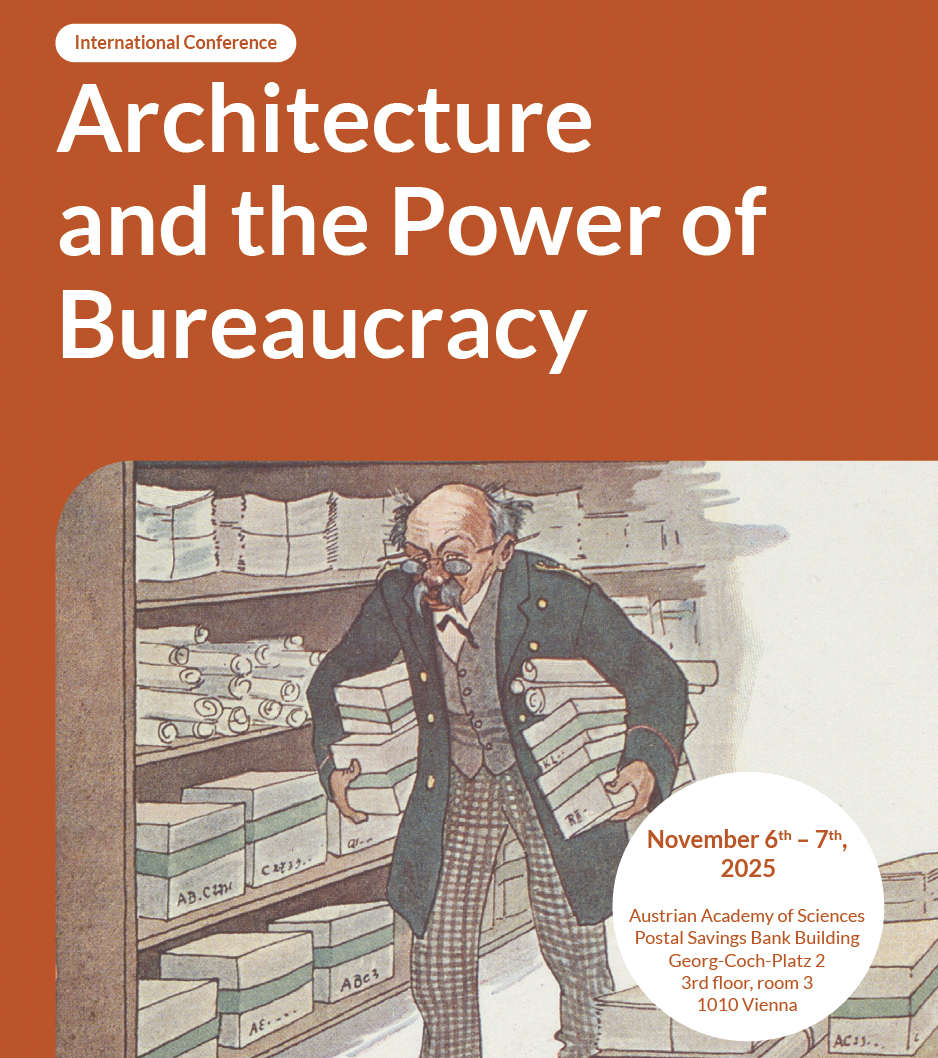Architecture Theory
The processes that shape large-scale built environments require critical analysis. Read through their social impact, bureaucratic and (proto-)digital design processes are understood in a multi-layered and intersectional way. This includes the critical examination of technophilic rhetoric of efficiency, rationalization, precision or function as well as the widening of actor circles or the consideration of consequences of architectural action. The urgent questions of our discipline concerning sustainability (also beyond technicist belief in progress) or diversity (as a real change of perspective, scientifically as well as in practice) are in the foreground. The questions that concern us are therefore the following: who produces which architectures with what (social, political or aesthetic) intention? At whose expense are they produced? Who and what is included or excluded? Which societal images are constructed, and what architectures are projected by societies? In teaching and research, we deepen selected questions methodologically and thematically, always closely linked to reading and writing practices through iterative text production and by approaching multi-perspective bibliographies and formats. Architectures, or better, spatial practices, shape environments in the midst of communities and societies. The responsibility this entails makes informed critical historical and theoretical engagement urgent.
Prof. Dr. Anna-Maria Meister, 2023

Misfits, curated by Virginia Marano (Karlsruhe Institute of Technology) as part of the spring edition of What Is Research Now?, brings together painting, sculpture, photography, film, and archival material from the early nineteenth century to the present, with works by Sarah Biffin, Lorenza Böttner, Jesse Darling, Tony Heaton, Martha Ann Honeywell, Tom Olin, Donald Rodney, Michael Stahlberg, and Kurt Weston.
The evening opens with an intimate preview to launch the Disabled Legacies: Beyond Access and Inclusion gathering, featuring a guided walkthrough of the Paul Mellon Centre display Misfits: Disability as Method Through Objects, curated by Virginia Marano, who will be available to discuss the exhibition and answer questions. This is followed by an informal talk by artist Keith Piper on the life and work of Donald Rodney, whose works appear in the display. The event concludes with a reception.
Mehr...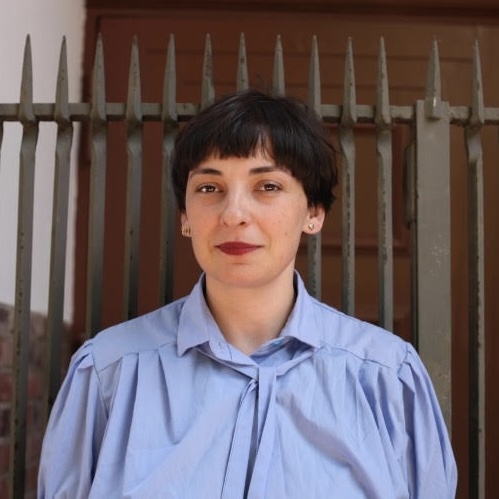
Tinatin Gurgenidze is an architect, curator and researcher based in Berlin. She is co-founder and curator of the Tbilisi Architecture Biennial. Her research focuses on post-socialist mass housing and everyday urban practices. Tinatin was co-curator of the Georgian Pavilion at the Venice Architecture Biennale and a jury member for the EUmies Awards. She currently teaches architectural theory at the Karlsruhe Institute of Technology and publishes internationally on topics related to architecture, with a particular focus on the post-socialist urban context.

We want to make architectural theory more tangible by exhibiting it, discussing and presenting it in Karlsruhe's urban space! We invite you to the Architekturschaufenster for "AT goes A SF" to discuss insights, questions and ideas from our courses with students and guests.
6.02.26. 17:00-20:00
Architekturschaufenster Karlsruhe, Waldstraße 8, 76131 Karlsruhe
[in person]

Simone C Niquille is a Swiss designer and researcher based in Amsterdam NL. Through technoflesh Studio she produces films and writing that investigate computation as the new optics. Her work is concerned with vision technologies, the images they make and the worlds they create—from computer vision, 3d animation, computational photography to synthetic training datasets. Her work advocates for non-binary technology and against machine learning as a tool to validate and instrumentalize assumptions and reduce reality.
technoflash Studio
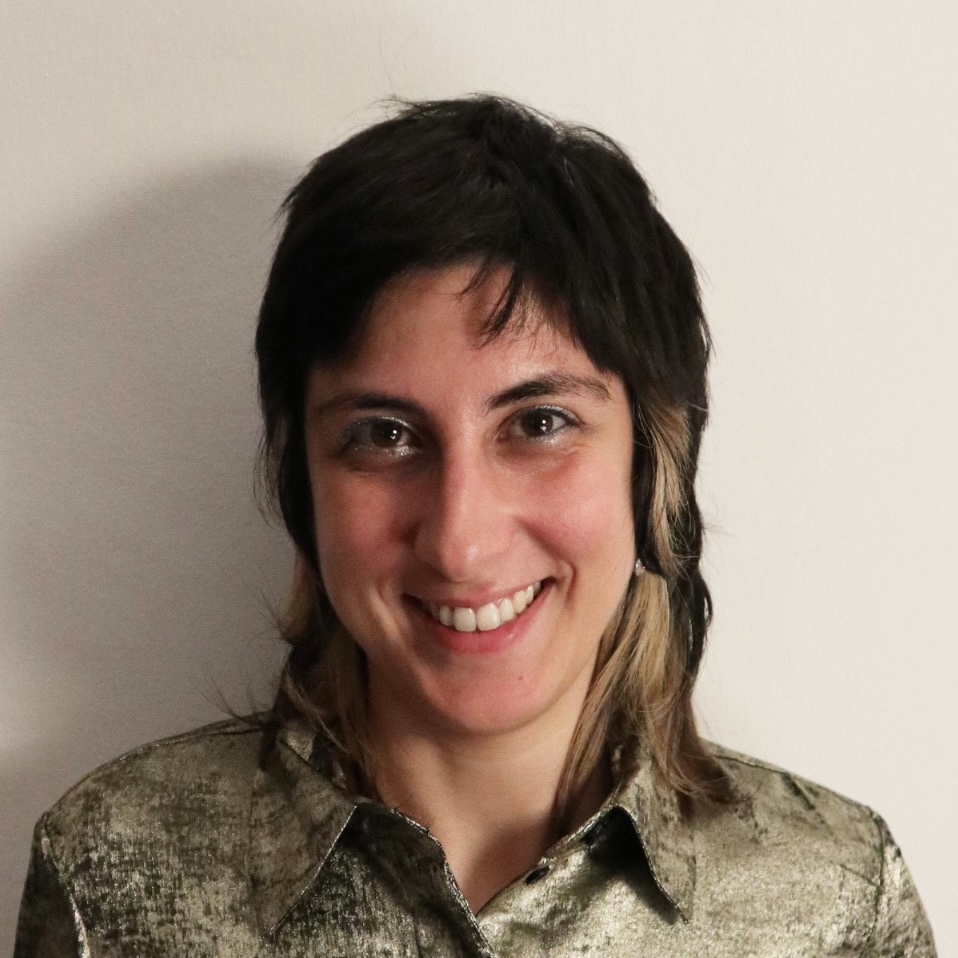
Virginia Marano is an art historian and curator whose work critically engages contemporary art through disability studies and the histories of architecture and design. She is currently a Junior Research Fellow in the Young Investigator Group Preparation Program (YIG Prep Pro) at the Karlsruhe Institute of Technology (KIT) and an associate scholar in the Lise Meitner Group “Coded Objects,” led by Anna-Maria Meister at the Kunsthistorisches Institut in Florenz – Max-Planck-Institut.
More...
This case study examines how two buildings at the German Embassy in Washington, DC reflect changing national identity and diplomatic self-presentation through architecture. Egon Eiermann's 1964 chancery building, with its understated modernist design, embodied West Germany's post-war desire to project restraint and technological sophistication while distancing itself from Nazi-era neoclassicism. In contrast, Oswald Matthias Ungers’ 1994 ambassadorial residence, with its classical columns and grand form, represents a more confident reunified Germany, though its architectural choices sparked controversy over historical associations. The case demonstrates how embassy architecture serves as a ‘calling card’ for nations, revealing shifts in diplomatic self-image and the complex relationship between architectural style and political ideology.
More...
Matthias Böttger studied architecture and urban planning in Karlsruhe and London. He began his academic career at the Bauhaus Dessau Foundation, followed by the University of Stuttgart and ETH Zurich, where he taught art and architecture. From 2012 to 2017, he was professor and head of the Institute for Space and Design at the University of Art and Design Linz. Since 2017, he has been director of HyperWerk and professor at the FHNW Academy of Art and Design in Basel. Since 2021, he has been head of the IXDM there, offering BA Process Design and MA Transversal Design courses.
In 2008, Matthias Böttger curated the German contribution ‘Updating Germany’ at the Architecture Biennale in Venice together with Friedrich von Borries, and in 2013 he curated the German contribution ‘Nòs Brasil! We Brazil!’ in São Paulo. From 2011 to 2022, he was artistic director of the German Architecture Centre DAZ in Berlin.
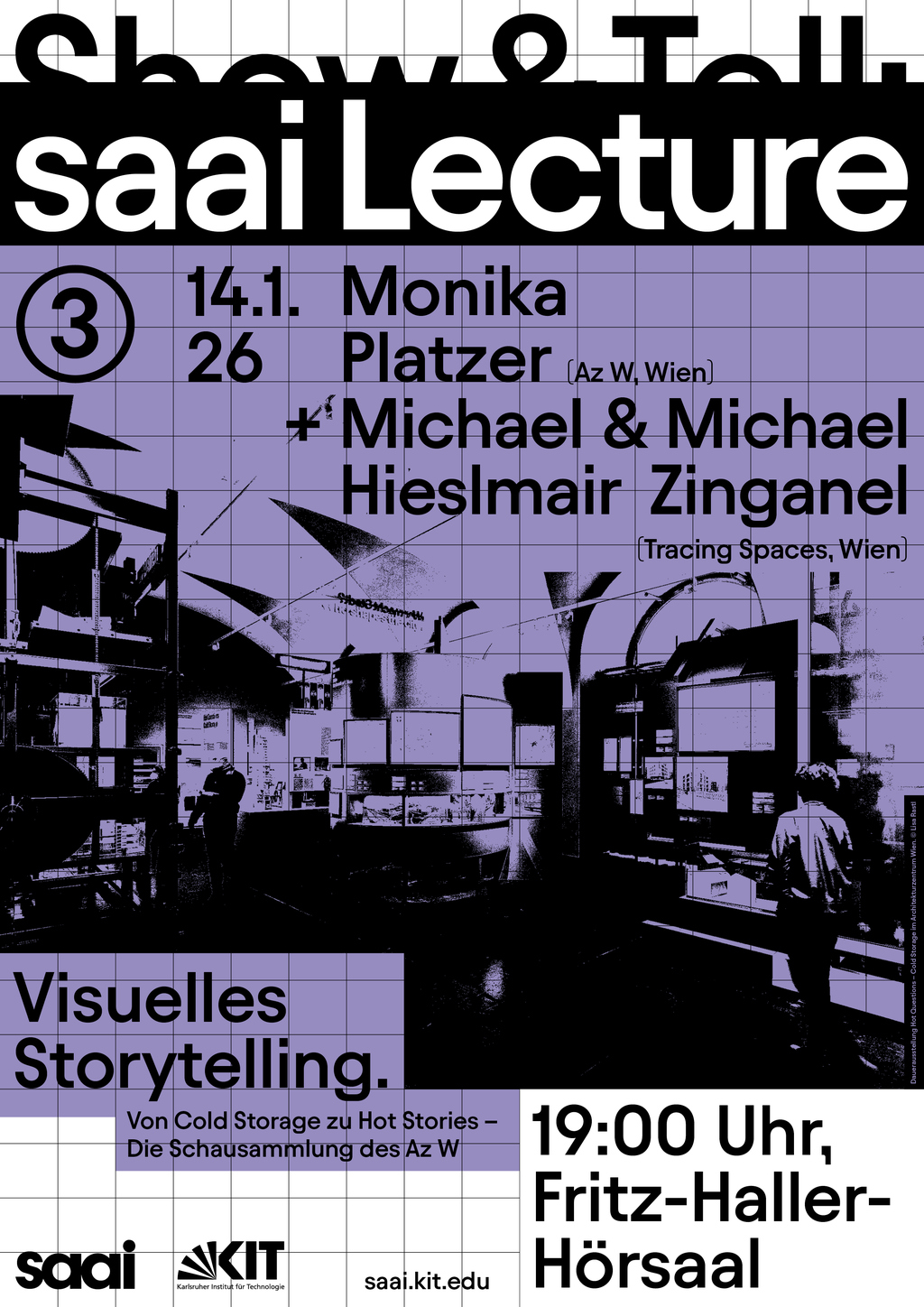
Monika Platzer studied art history at the University of Vienna. Works at Architekturzentrum Wien as head of collections and curator. She has led national and international research and exhibition projects, including Hot Questions – Cold Storage. The Permanent Exhibition at the Az W; Cold War and Architecture. The Competing Forces that Reshaped Austria; “Vienna. The Pearl of the Reich.” Planning for Hitler; a_show. Austrian Architecture in the 20th and 21st Centuries.
Monika Platzer has taught at the University of Vienna and the Vienna University of Technology; editor of ICAM print, the journal of the International Confederation of Architectural Museums (2004–2020). In 2014, she was visiting scholar at the Center for European Studies, Harvard University, USA. Her research focuses on twentieth-century Austrian architecture and cultural history, transnational architectural history. She lectures and publishes extensively.
https://www.azw.at/
Tracing Spaces designs exhibitions that are developed and curated within the framework of its own research focuses (including 2012–2015 Urlaub nach dem Fall, 2014–2016 Road Registers, 2020–2022 Serpentine, 2023–2024 Cargo Vienna) or commissioned by third parties (including 2022 the new exhibition collection of the Az W Hot Questions, Cold Storage, 2022 IBA International Building Exhibition Vienna, 2023 Collected at Any Price at the Volkskundemuseum Vienna). In the field of urban curating, they activate interactions in social space through medium-term on-site projects and spatial interventions. Since 2015, Tracing Spaces has been operating a project space at Vienna's last major inner-city logistics hub, since 2020 under the label Museum Nordwestbahnhof, where the social milieu of the logistics landscape is embedded and its diverse history is researched and communicated.

MA and BA students! Need help figuring out your essays or final projects? Come by our THEORY CLINIC, December 18, from 12 - 3 pm, in room 254, and we will help you get back into the flow of things!
Four times per semester we offer our "theory clinic": stop by without an appointment to discuss your design process and where it hurts. We offer references, comments and feedback for the neuralgic points in open table critiques - completely unbiased. Walk-ins are welcome!

Ana Neiva holds a Ph.D. in Architecture from the Faculty of Architecture of the University of Porto (FAUP), with a dissertation titled Exhibiting Portuguese Architecture: Twentieth-Century Curatorial Strategies. She is an invited Assistant Professor at FAUP—where she is also an integrated member of the research centre CEAU—and at Universidade Lusófona. Her research explores the intersections between architecture, curatorial practice, and contemporary societal challenges, with a special focus on health, well-being, and memory.
Her curatorial work reflects this engagement across contexts: from Porto – The City, the School, and the Masters (UABB Shenzhen, 2015), to Lo Studio Ginoulhiac – 10 Anni. 10 Case. 10 Temi di Architettura (Bergamo and Porto, 2019), and Fertile Futures, Portugal’s official representation at the 18th Venice Architecture Biennale (2023), where she served as deputy curator. She currently co-curates O que Faz Falta: 50 Years of Architecture in Democracy, on view at Casa da Arquitectura, Matosinhos.
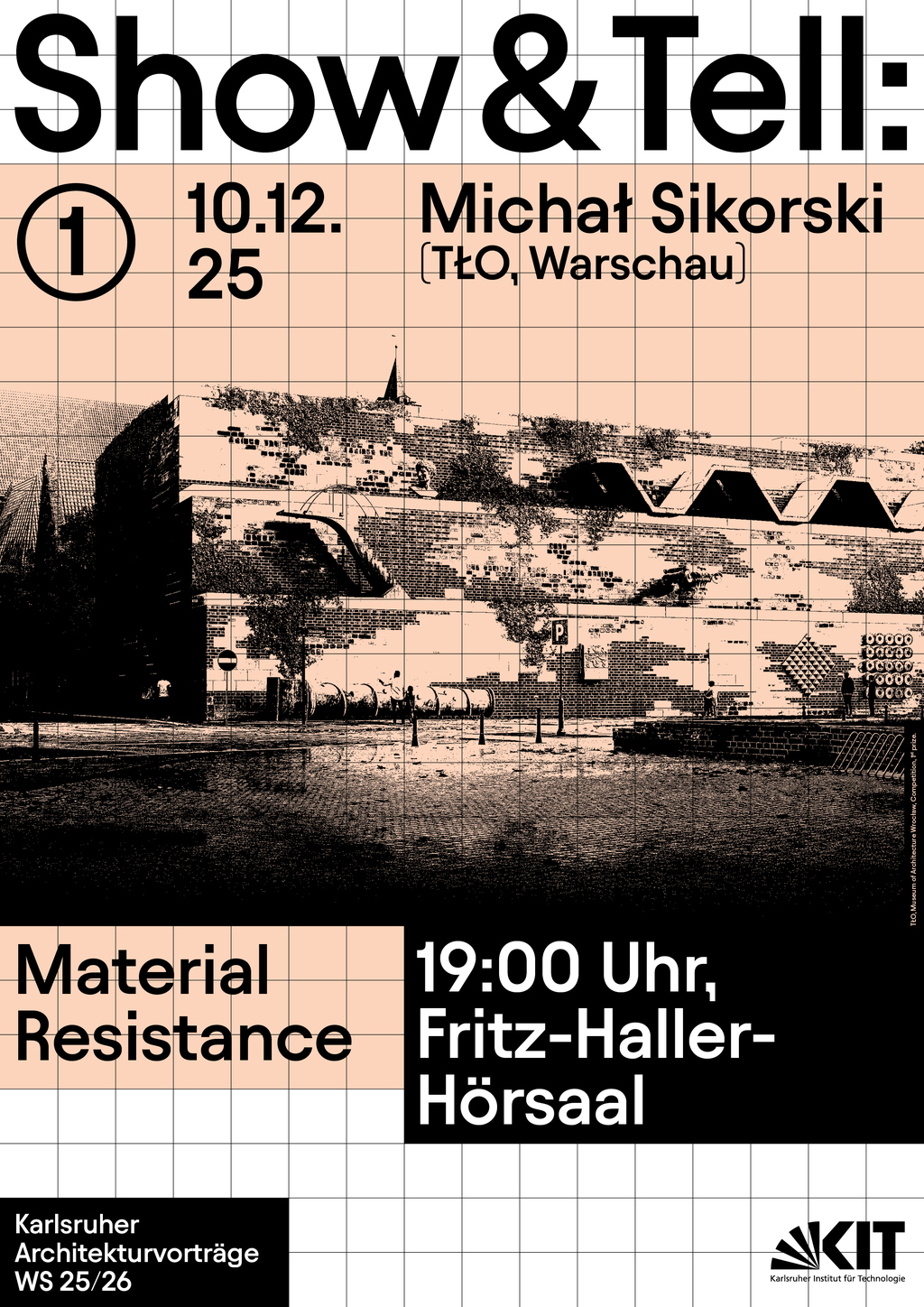
Michał Sikorski is an architect and urban planner, educated in France. He worked with Xaveer De Geyter Architects in Brussels for a decade and later headed the Office of Innovation at the University of Warsaw. He has taught and conducted research at several European architecture schools, including ETH Zürich and WAPW in Warsaw and wrote a book about campus planning. In 2021, he founded TŁO – meaning background or backdrop in Polish – a Warsaw-based architecture and urban planning office. The team of ten architects works mainly on the transformation and extension of existing buildings, with a strong focus on material reuse. TŁO designs for both public institutions and private clients, approaching projects as processes of transformation. The office was awarded the main medal at the London Design Biennale in 2023, and in 2024 won the competition for the extension and transformation of the Museum of Architecture in Wrocław, a project currently under development.
TŁO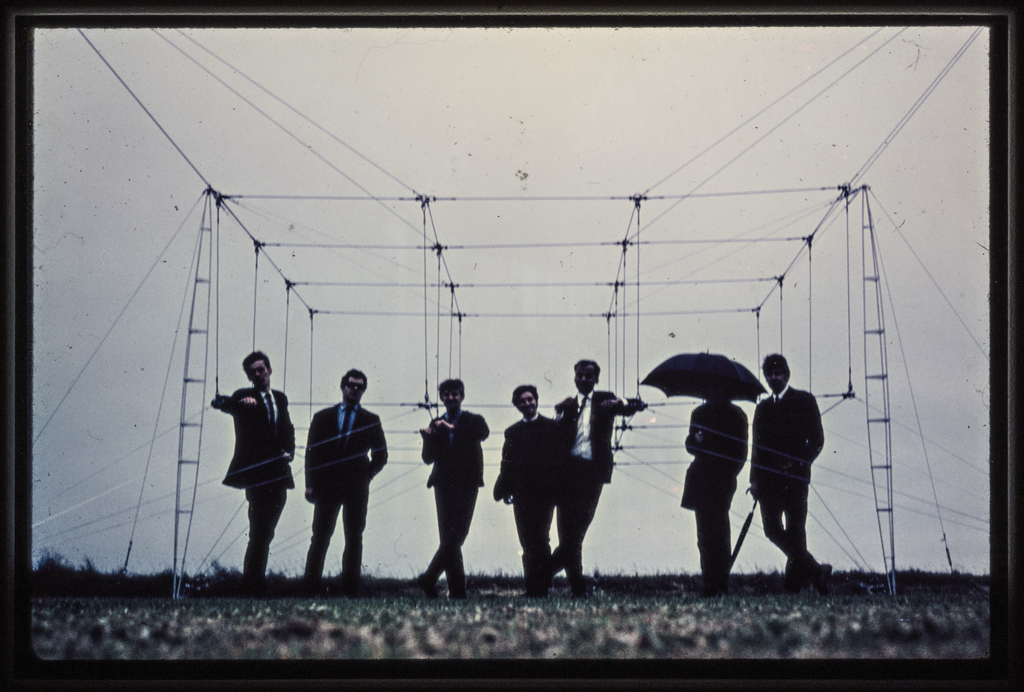
Mechthild Ebert, Manuela Gantner, and Sina Brückner-Amin will speak on November 20 in Antwerp at the Archive Research Day of the Vlaams Architectuurinstituut (VAi) about the Conrad Roland Work Archive, a collaborative project of the saai Archive and the Wüstenrot Foundation. Anna-Maria Meister participates as keynote speaker.The 2025 edition is titled Hors Catégorie and examines how archival classifications both shape and limit our understanding of designs and design processes. How do archival institutions categorize objects, disciplines, and forms of authorship, and what blind spots arise as a result of these systems? How can we consider what evades, transcends, or challenges conventional institutional and historical classification? What do we do with hors catégorie practices?
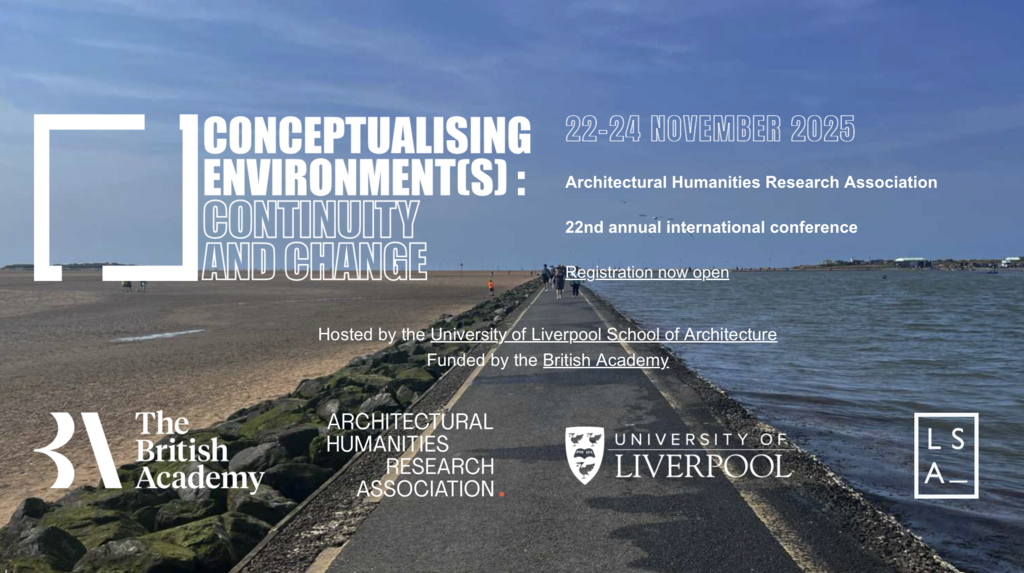
At the 22nd Architectural Humanities Research Association Annual International Conference entitled “Conceptualizing Environment(s): Continuity and Change,” taking place in Liverpool (UK), Sina Brückner Amin, together with Chelsea Spencer (Columbia University), and Maryia Rusak, will be panel hosts. In the “Controlled Environments” strand, Brückner-Amin and Spencer will hold the session “Property Claims: Legal Fictions of Environmental Control,” while Rusak will hold the session “The Ecologies of Aid and Activism” in the “Natural Environments” strand. Virginia Marano of the Lise Meitner Group “Coded Objects” (KHI Florence) will speak in the session “Environments of Disability” on “Misfitting Environments: Reframing Access through Spatial Friction.”
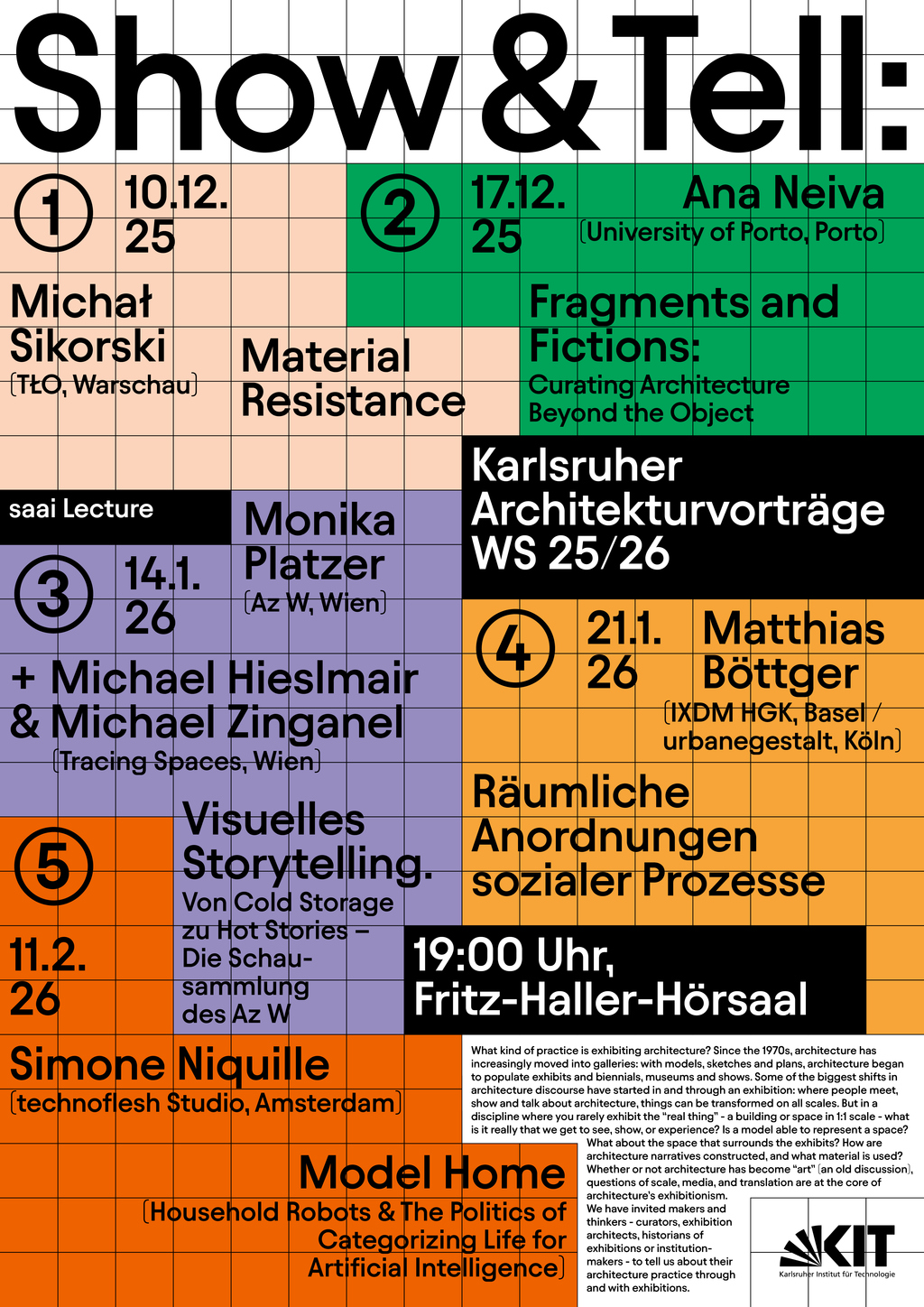
What kind of practice is exhibiting architecture? Since 1970s, architecture has increasingly moved into galleries: with models, sketches and plans, architecture began to populate exhibits and biennials, museums and shows. Some of the biggest shifts in architecture discourse have started in and through an exhibition: where people meet, show and talk about architecture, things can be transformed on all scales. But in a discipline where you rarely exhibit the “real thing” - a building or space in 1:1 scale - what is it really that we get to see, show, or experience? Is a model able to represent a space? What about the space that surrounds the exhibits? How are architecture narratives constructed, and what material is used? Whether or not architecture has become “art” (an old discussion), questions of scale, media, and translation are the core of architecture’s exhibitionism. We have invited makers and thinkers - curators, exhibition architects, historians of exhibitions or institution makers - to tell us about their architecture practice through and with exhibitions.
Karlsruher Architekturvorträge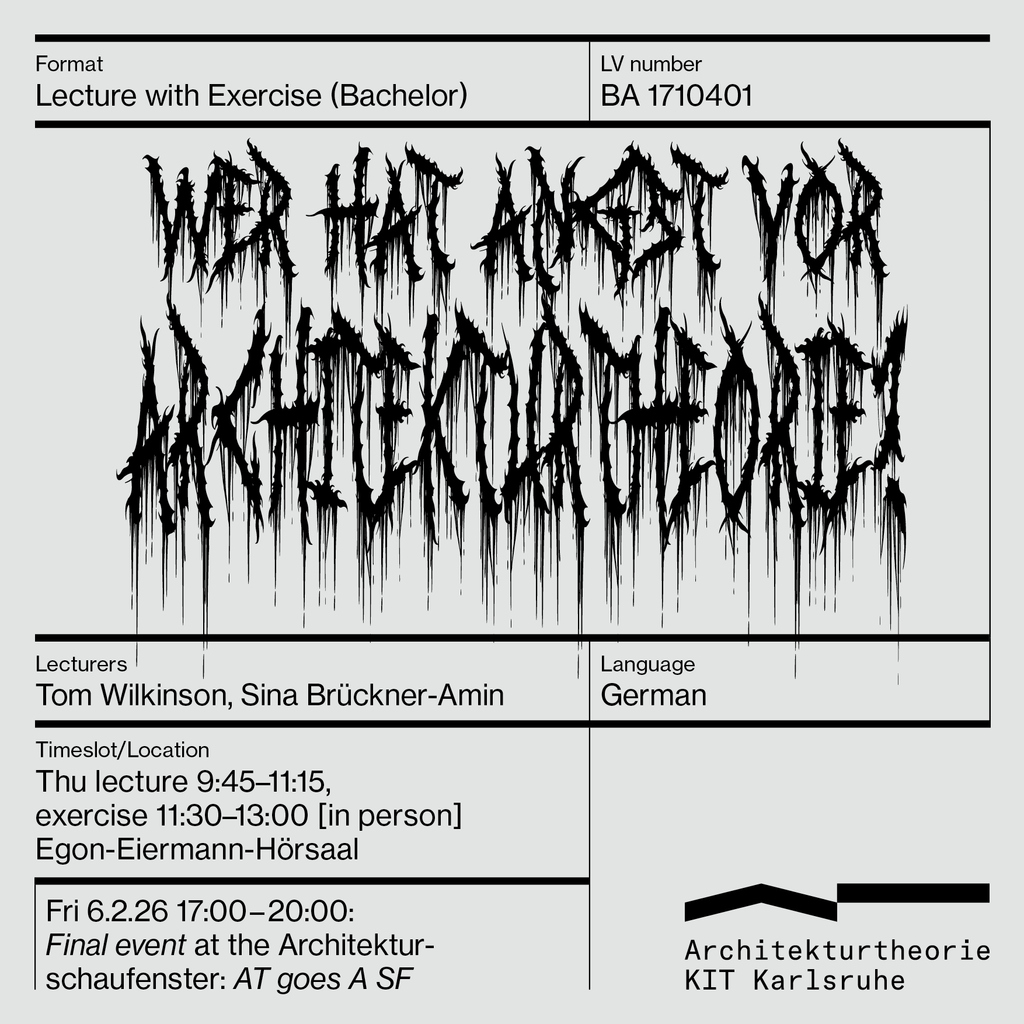
Architecture is a societal practice: the creation of spaces for others. So why theory? The built environment is a discourse, with statements already standing, critiques being formulated - and like any discourse, it is in constant flux. Hence, whatever architects contribute is always already part of a longer negotiation, and that is why it is important to know what position to take, who one quotes (consciously or unconsciously), what one wants to question, what to stand up for. This includes critical engagement with technophilic rhetorics of efficiency, rationalization, precision, or function, as well as expanding circles of actors or considering the consequences of architectural action. The pressing questions of our discipline about intersectional sustainability beyond the technicist belief in progress or diversification as a real change of perspective are foregrounded. The questions that preoccupy us are therefore: who produces which architectures with what (social, political or aesthetic) intention? At whose expense are they produced? Who and what is included or excluded? What images of society are constructed by them? Different positions will be illuminated in order to ask better and better questions.

The theory and historiography of modern architecture, long focused on the global north, is beginning to be decentred. But one global south nation has always held a prominent role in this story, despite its supposedly peripheral status: Brazil. In this seminar, we will discuss the use of the nation as an epistemological category, models of relative development in architectural history, and the theoretical contributions that have developed out of Brazil’s very particular conditions: vast in scale and disparity, and shaped by colonialism, dictatorship, immigration and slavery.

This seminar will explore architectural elements such as façades, balconies, windows, and ground floors, viewing them not only as functional components but also as cultural, social, and political symbols. We will analyze how these elements acquire new meanings over time, reflecting local identities, economic conditions, and broader historical shifts.
The case study of Georgia is particularly compelling, as the collapse of the Soviet Union sparked a radical transformation of its built environment. The privatization of housing allowed residents to modify standardized housing blocks, leading to self-made alterations that continue to shape urban identity. By situating Georgia’s example within a broader architectural discourse, the seminar will illustrate how seemingly ordinary details can embody dynamic processes of change and serve as living archives of collective experience.
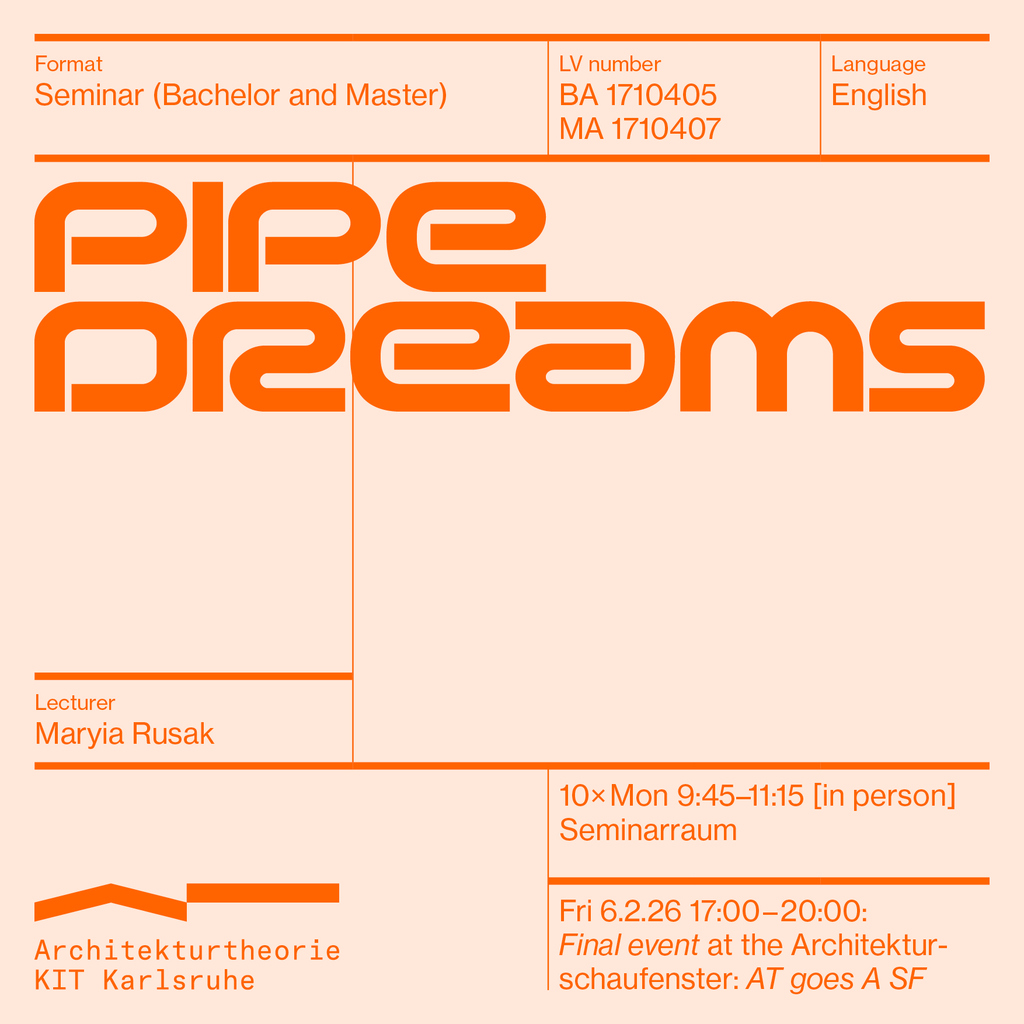
While we often think of space as something abstract, it is shaped by a range of infrastructural systems. The seminar will investigate how existing infrastructural networks—roads, railways, electricity grids, oil pipelines, internet cables and waste systems—provide a concrete physical form to the abstract political idea of a united Europe. The seminar is particularly interested in the physical materiality of mundane infrastructural objects and their generative (and often violent) spatial effects.
During the semester, we will read key texts on the politics of infrastructure and investigate political imaginaries of selected systems. Karlsruhe, an envisioned European oil and data hub in the 1970s, will provide a helpful departure point. We will map the spatial impact of selected infrastructures and envision alternative futures more responsive to the contemporary climate emergency.
